Jequirity (love pea)
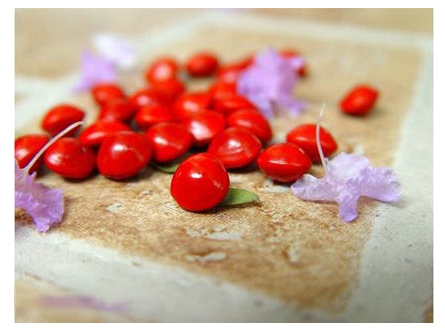
Jequirity is an old keepsake representing that two loves miss each other. It is said that a man went out for a battle in ancient China, and his wife leaned against a tree to pray for her husband every day. She cried under the tree because she missed her love. After her tears were dry, a drop of fresh blood flowed from her eyes. The blood drop melted into red pea, which took roots and grew into a large tree, producing many red peas. Thus, people call it the "love pea."
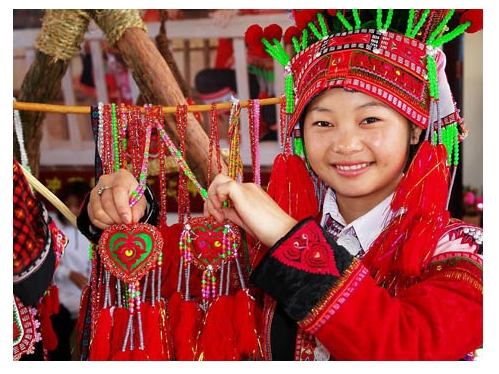
Fragrant bag is a bag used to hold spice. It is a kind of decoration carried by people or put in a mosquito net. Its history can be traced into the pre-Qin period. In the past, young people paid respects to their elders with the fragrant bag. The fragrant bag was usually carried, so loves exchange it as a gift to express their love.
Truelove Knot
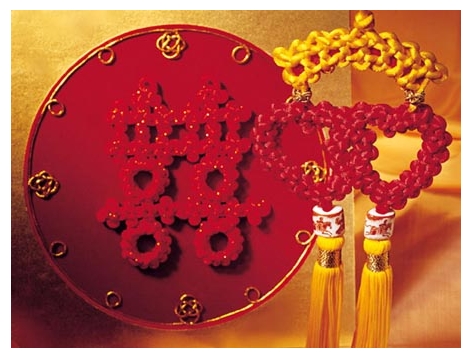
Truelove knot is the keepsake of love used to express a solemn pledge of love from of old. Now it is regarded publicly as a token of engagement in Chinese folk society. On their night of their marriages, both the husband and wife would knot their long hair together, and promise to each other forever.
Comb
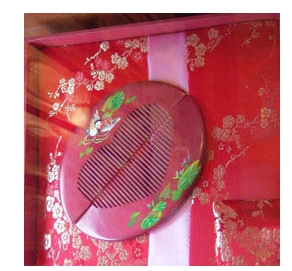
In ancient China, hair was called "threadlike things of troubles" (so monks will cut their hair off completely.). Combs can arrange hairs, so people think of it as a way to clear their troubled minds. I It also has the meaning of "smooth and prosper," so combs represent people's good wishes.
White Handkerchief
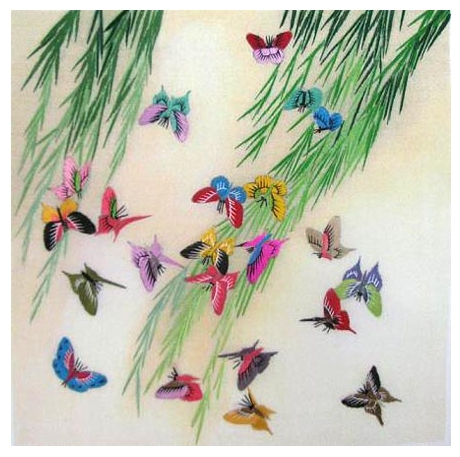
Handkerchiefs as a keepsake of love began in the Tang dynasty. There is a story that Zhang Sheng and Cui Ying-ying wrote poems in handkerchiefs and exchanged it to express their love in Yuan Zhen's "The Story of Mandarin Duck." In the Tang dynasty, many girls printed their lips in white handkerchief to present to the man they loved. In the Song dynasty, girls usually printed their eyebrows in the white handkerchief.





